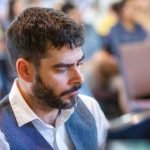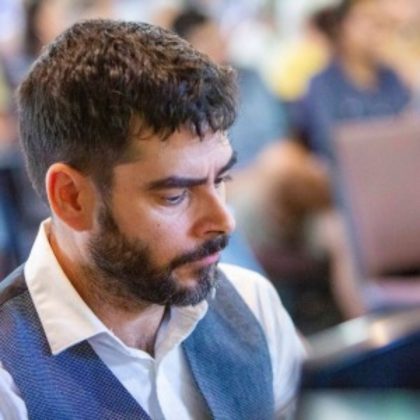The first worship service in August is a New Year celebration inspired by Egyptian religious practices. For me it’s a season of many beginnings, trying to name them would require an entirely different article. I was amazed at this serendipity. Inspired by the modern ballet production of Coppel-i.A’s themes of artificial intelligence and the movie Mystery Train’s juxtaposition of multiple realities I thought I would instead name new realizations.
1. There are words in American society that can trigger pain. The reaction to these words is unsettling to our notions of freedom of speech and political correctness. Our culture shuns pain even though it’s the brain’s tool for self-regulation. Assigning power to these words helps perpetuate the status quo and slow down our evolution and healing as a collective. By blaming, in the realm of language, and getting stuck within the constructs themselves, we externalise our relationship to this pain and don’t take responsibility for it. For some, we are evolving too fast and are not ready to cope with the present. We feel forced to let go of the suffering to which we are so attached and is an integral part of our identity. For some, we are tired of the oppression, the unconscious abuse towards everything that is. The embodiment practice as a concept is: I am not a victim.
2. Arrogance is rampant. We tend to believe that our words define the realities of others. We don’t practice discernment as a society, instead we assume and judge pathologically. Embracing our diversity is the key to our unity. Learning multiple languages can help us experience the world differently and incredibly foster compassion. We live in exciting times where systems of oppression, which I realize are truly unconscious systems, are continually being dismantled. Most of this dismantling is happening without anyone doing anything about it. In fact, people who actively work towards dismantling these systems are living in a fantasy in order to imbue meaning to their lives and derive righteousness from it. This fosters a sense of separation from those who don’t share in their attachment to the complex of being saviors. The embodiment practice as a concept is: I am not a savior.
3. Nature is not kind. An eagle doesn’t politely ask for permission to effectively eviscerate a squirrel. A squirrel doesn’t send an RSVP to let the farmer know that it will destroy this season’s harvest. Kindness is not natural. This ancient truth named in the Tao Te Ching helps us understand that we have a choice in how to interact with each other that can make our existence easier without denying it. The embodiment practice as a concept is: I am not a perpetrator.
(At the time of submission of this article the New Year’s Service had not been moved to August 20th)
About the author

Angel de Armendi, Music Director
Angel (he/she/they/any) received his Bachelor of Music degree from New World School of the Arts and continued his study of piano performance at Florida International University. He made his way to Tallahassee through the Music Theory graduate program at FSU. While in school he diversified his piano skills accompanying FSU and Tallahassee City Ballet dance classes. His interest in vocal coaching took him to the Asolo Song Festival in Italy during two summers, as Assistant Director/Pianist and Composer In Residence. In Tallahassee, he also directs the High Holy Days Choir at Temple Israel, and has been their regular pianist since 2008. His love for sacred music and practice has motivated him to go through and graduate in 2015 from the Music Leadership Credentialing Program, offered by the Unitarian Universalist Musicians’ Network. During their 2015 conference in Boston he was unanimously elected as Board Member at Large for the Board of Trustees, a three-year voluntary commitment. He is deeply committed to building a thriving music program at the Unitarian Universalist Church of Tallahassee.

